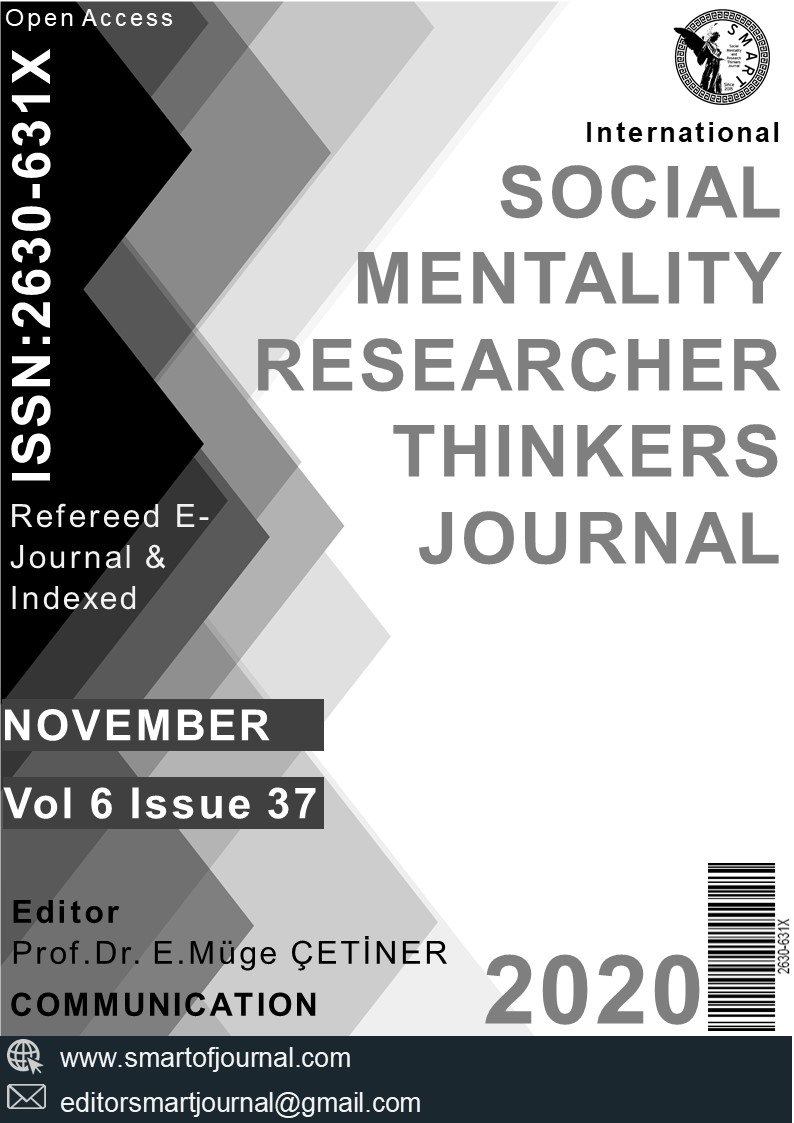KURUMSAL YÖNETİM DERECELENDİRME NOTLARININ ŞİRKETLERİN KARLILIK ORANLARI (AKTİF KARLILIĞI VE ÖZKAYNAK KARLILIĞI) ÜZERİNDEKİ ETKİSİ
Author :
Abstract
Çalışmada 2013-2017 yılları arasında Borsa İstanbul Kurumsal Yönetim Endeksi’nde aralıksız olarak yer alıp, imalat sektöründe faaliyet gösteren toplam 15 adet işletmeye derecelendirme kuruluşları tarafından verilen Kurumsal Yönetim İlkeleri Uyum Derecelendirme puanları ile bu işletmelerin finansal performanslarını belirleyen unsurlardan olan karlılık oranları arasındaki eşbütünleşme ilişkisinin varlığı araştırılmıştır. Bu ilişkinin varlığını incelemek için çalışmada bağımsız değişken olarak şirketlere verilen pay sahipleri, kamuyu aydınlatma ve şeffaflık, menfaat sahipleri ve yönetim kurulu ilkeleri puanları, bağımlı değişken olarak ise aktif karlığı ve özkaynak karlılığı oranları kullanılmıştır. Bu çalışmada panel veri analizi yöntemi kullanılmış olup ilk olarak Breusch Pagan (1980) LM Testi kullanılarak paneli oluşturan seriler arasında yatay kesit bağımlılığı tespit edilmiştir. İkinci adımda ise ikinci nesil panel birim kök testlerinden olan Pesaran (2007) CADF testi serilere uygulanmış olup özkaynak karlılığı, aktif karlılığı, pay sahipleri, şeffaflık, menfaat sahipleri, yönetim kurulu, toplam puan değişkenlerinin bir farkta durağan I(1) olduğu görülmüştür. En son adımda ise Westerlund (2007) panel eşbütünleşme testi yardımıyla seriler arasında eşbütünleşme ilişkisinin varlığı incelenmiş ve finansal performansı temsil eden karlılık oranlarının göstergesi olan değişkenler (özkaynak karlılığı, aktif karlılığı) ile kurumsal yönetim derecelendirme puanlarını temsil eden bağımsız değişkenler (pay sahipleri, şeffaflık, menfaat sahipleri, yönetim kurulu) arasında eşbütünleşme ilişkisinin olduğu saptanmıştır.
Keywords
Abstract
In the study, the existence of a cointegration relationship between the Corporate Governance Principles Compliance Rating scores given by rating institutions to a total of 15 businesses operating in the manufacturing sector that were continuously included in the Borsa Istanbul Corporate Governance Index between 2013-2017 and the profitability ratios, which are among the elements that determine the financial performance of these companies. It has been investigated. In order to examine the existence of this relationship, shareholders, public disclosure and transparency, stakeholders and board principles scores given to companies as independent variables, and return on assets and return on equity ratios as dependent variables were used. In this study, panel data analysis method was used, and first, the cross-sectional dependency was determined between the series that make up the panel using the Breusch Pagan (1980) LM Test. In the second step, Pesaran (2007) CADF test, which is one of the second generation panel unit root tests, was applied to the series, and it was observed that the variables of return on equity, return on assets, shareholders, transparency, stakeholders, board of directors, total score were stable with a difference I (1). In the last step, with the help of Westerlund (2007) panel cointegration test, the existence of cointegration relationship between series was examined and variables representing profitability ratios representing financial performance are (equity profitability, return on assets) and independent variables representing corporate governance rating scores are (shareholders, transparency, stakeholders, the board of directors) It has been determined that there is a cointegration relationship between.
Keywords
- Arslantaş, C. & Fındıklı, M. (2009).” İMKB-50’de Yer Alan Şirketlerin Yönetim Kurulu Yapılanmaları”,
- Arslantaş, C. & Fındıklı, M. (2009).” İMKB-50’de Yer Alan Şirketlerin Yönetim Kurulu Yapılanmaları”, İstanbul Üniversitesi İşletme Fakültesi Dergisi, 39(2): 258-275 .
- Başkan, D. & Vardar, G. (2018). “Sigorta Sektöründe Kurumsal Yönetim Uygulanmasının Firma Performansına Etkisinin Tespiti”, Muhasebe ve Vergi Uygulamaları Dergisi , 582-607.
- Bozkurt, K. & Pekmezci, A. (2018). “Gelişmekte Olan Ülkelerde Fikri ve Sınai Mülkiyet Hakları (FSMH) ve İthalat: Bir Panel Veri Analizi”, Uluslararası Yönetim İktisat ve İşletme Dergisi, 14(2): 505-516.
- Bozkurt, K. (2012). “Dışsal Teknolojik Şokların Gelişmekte Olan Ülkelerin Büyüme Sürecine Etkileri”, Yayınlanmamış Doktora Tezi, Muğla Üniversitesi Sosyal Bilimler Enstitüsü, İktisat Anabilim Dalı.
- Breusch, T.S. & Pagan, Adrian (1980). “The Lagrange Multiplier Test and Its Applications to Model Specification Tests in Econometrics”, Review of Economic Studies, 47, 239-253
- Colley, J. (2004). What is Corporate Governance?, Ohio: McGraw-Hill Professional Publishing.
- Çağıran, F. & Kayasandık, A. (2018). “Karlılık Oranlarının İşletmelerin Kurumsal Yönetim DerecelendirmeNotuna Etkisi: BİST Kurumsal Yönetim Endeksi'nde Panel Veri Analizi”, İnovasyon ve Küresel Konular Kongresi, 22-24 Kasım 2018, 1283-1298, Antalya.
- Dabor, A. & Isiavwe, D. (2015). “Impact of Corporate Governance on Firm’s Performance”, International Journal of Economics, Commerce and Management, 3(6): 634-653.
- Doğan, M. (2018). “Kurumsal Yönetimin Teorik Temelleri”, Uluslararası Yönetim Akademisi Dergisi, 1(1):Genç, E.; Karakoç, M. & Tayyar, N. (2016). “Gri İlişkisel Analiz Yöntemiyle Kurumsal YönetimEndeksinde Yer Alan Şirketlerin Finansal Performanslarının Ölçümü Ve Kurumsal Derecelendirme Notları İlişkisi”, Elektronik Sosyal Bilimler Dergisi, 15 (59): 1327-1338.
- Güçlü, H. (2010). Kurumsal Yönetim Uyum Derecelendirmesi, İstanbul: İMKB Yayını.
- Gülhan, O. & Karaarslan, S. (2020). “Türkiye’de Kurumsal Yönetim Uyum Derecelendirmesi Ve İhtiyatlı Muhasebe İlişkisi”, Muhasebe ve Vergi Uygulamaları Dergisi, 13 (1); 93-113 .
- Horasan, E.; Meydan, C. & Yılmaz, T. (2019). “Sahiplik Yapısının Değer Odaklı Performans ÖlçütleriÜzerindeki Etkisi: BİST İmalat Sektörü Üzerine Bir Uygulama”, İşletme Araştırmaları Dergisi, 11(1): 720-Kula, V. (2006). Kurumsal Yönetim Hissedarların Korunması Uygulamaları ve Türkiye Örneği, Papatya Yayıncılık.
- Mercan, M.; Peker, O. & Göçer, İ. (2015). “Ham Petrol Fiyat Artışlarının Enflasyonist Etkisi: SeçilmişOECD Ülkeleri İçin Yapısal Kırılmalı Dinamik Panel Veri Analizi”, Doğuş Üniversitesi Dergisi, 16(2): 123-Öztürk, S.; Ekı̇ncı̇, S. & Yılmaz, T. (2020). “Kurumsal Yönetim Endeksinde Bulunan ve Bulunmayan İşletmelerin Finansal Durum Analizi: BİST Örneği”, Verimlilik Dergisi, (1): 27-53.
- Pesaran, H. (2007). “A Simple Panel Unit Root Test in the Presence of Cross-Section Dependence”, Journal of Applied Econometrics, 22, 265–312.
- Todorovic, I. (2013). “Impact Of Corporate Governance on Performance of Companies”, Montenegrin Journal of Economics, 9 (2): 47-53.
- Tükenmez, M.; Gençyürek, A. & Karakelleoğlu, M. (2017). “Kurumsal Yönetim Derecelendirme Notlarının Şirketlerin Finansal Performansı Üzerindeki Etkisi”, Ege Stratejik Araştırmalar Dergisi, 8(1); 1-18.
- Westerlund, J. (2007). “Testing for Error Correction in Panel Data. Oxford Bulletin of Economics and Statistics”, 69(6): 709-748.
- Yörük, N. (2006). “Aile Şirketlerinde Kurumsallaşma ve Halka Açılmanın Finansal Performans ÜzerineEtkisi: Halka Açık Bir Aile Şirketi Üzerinde Vaka Çalışması”, SÜ İİBF Sosyal ve Ekonomik Araştırmalar Dergisi, 6 (12): 180-202.
- OECD (1999). Principles of Corporate Governance, Paris.https://www.oecd.org/officialdocuments/publicdisplaydocumentpdf/?cote=C/MIN(99)6&docLanguage=En, (Erişim Tarihi: 24.02.2020)
- OECD (2004). Principles of Corporate Governance, Paris. http://www.oecd.org/corporate/ca/corporategovernanceprinciples/31557724.pdf, (
- OECD (2015). G20/OECD Kurumsal Yönetim İlkeleri. http://www.oecd.org/daf/ca/Corporate-Governance- Principles-TUR.pdf,
- Finnet Mali Analiz Programı, www.finnet2000.com
